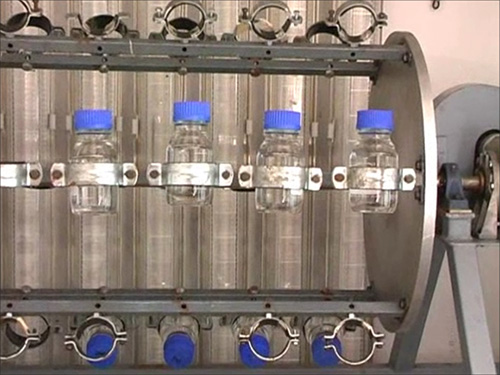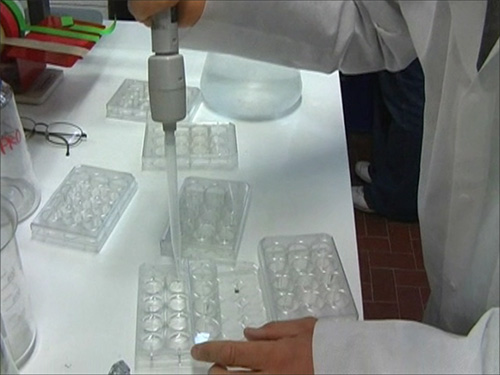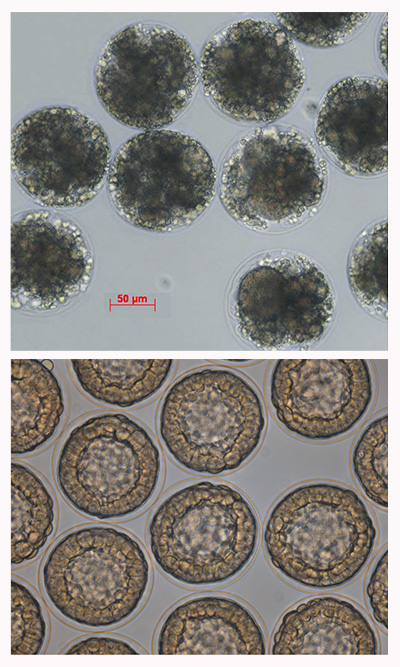Supervisor: Dr. Giovanna Romano
Scientific activities
The Laboratory of Chemical Ecology offers instrumentation and support to conduct studies of Chemical Ecology on the marine plankton. The research activities carried out in the laboratory are focused in particular on the study of the effects that secondary metabolites produced by diatoms induce in planktonic organisms and in marine model organisms such as sea urchins. The laboratory is also equipped for the extraction and the first fractionation of bioactive compounds and for the study of their biological activity.
Experimental systems
- Rotating wheel for copepod rearing and experimentation.
- Thermostated chamber for microalgae cultivation and incubation of copepods in controlled conditions.
- Basic facility for microalgae cultivation.
Analysis
- Sorting, isolation and identification of live phytoplankton and zooplankton species from natural samples.
- Determination of ingestion and reproduction rates of marine organisms.
- Biological assays to test diatoms and their metabolites using copepods and sea urchins.
- Analysis of assay results by light microscopy.
- Culturing of microalgae in different media.
- Preparation of algal pellet by centrifugation.
- Extraction and first fractionation of secondary metabolites from algal pellets.
- Biochemical and colorimentric assay to study the metabolism of oxylipins in diatoms.
Equipments
- Chemical hood (total expulsion).
- Stereo-microscopes.
- Upright and inverted microscopes.
- Fluorescence microscope equipped with a PC and video camera.
- Benchtop refrigerated centrifuges.
- Rotavapor.
- Spectrophotometer.
- Sonicator.
- Ph meter.
- Oxygraph.
- Recirculating water bath.













